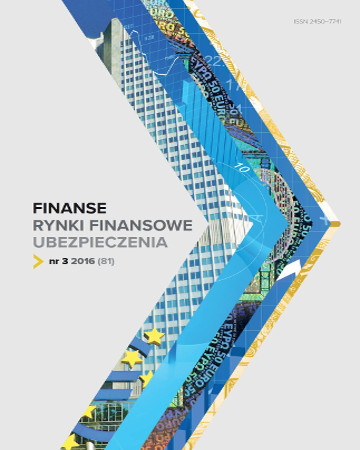
ISSN: 2450-7741
eISSN: 2300-4460
OAI
DOI: 10.18276/frfu.2016.4.82/1-71


Issue archive /
4/2016
The Use of Knowledge Capital in a Region Through Building a Network of Cooperation Between the Public and Private Sector
| Authors: |
Beata
Wierzbicka
Jędrzej Strumiłło |
| Keywords: | region learning organisation public sector globalisation |
| Data publikacji całości: | 2016 |
| Page range: | 11 (851-861) |
Abstract
In the times of information civilization knowledge is treated as a very important factor of every single organisation. That factor, due to the abilities and experience of the members of a community, allows using other resources in a more optimal way when it comes to prioritizing the development of an organisation. Nowadays, knowledge is a very valuable factor in cooperation among all the business entities of socioeconomic life. Knowledge, and particularly the process of spreading knowledge among entities within a region, allows for the efficient and successful accomplishing a creative community’s development strategies. The aim of the article is to indicate the need for cooperation between the public and private sector in the effective management of community knowledge potential due to creating present and future prosperity
Download file
Article file
Bibliography
| 1. | Castells M. (1996). The Rise of the network Society, Cambridge. |
| 2. | Cohen S.S., Fields G. (2000). Social capital and capital gains: An examination of social capital in Silicon Valley. In: M. Kenney (ed.), Understanding Silicon Valley: The anatomy of an entrepreneurial region. Stanford |
| 3. | Drucker P.F. (1999). Społeczeństwo pokapitalistyczne. Warszawa: Wydawnictwo Naukowe PWN, |
| 4. | Friedman T.L. (2001). Lexus i drzewo oliwne. Zrozumieć globalizację. Poznań: Dom Wydawniczy Rebis. |
| 5. | Garratt B. (2001). The Learning organization. Developing Democracy at work. London. |
| 6. | Kowalczyk A., Nogalski B. (2007). Zarządzanie wiedzą. Koncepcje i narzędzia. Warszawa: Difin. |
| 7. | Lamboy J.G. (1995). Structural change: Economic and geographical perspectives. In: A. Kukliński (ed.), Baltic Europe in the Perspective of global change, Europe 2010 series1. Warszawa. |
| 8. | Lechicka-Kostuch M. (2008). Determinanty rozwoju polskich regionów. Sopot: Fundacja Rozwoju UG. |
| 9. | Monitor Polski, Dz.U. RP, w36, poz.423, Warszawa 20 maja 2011. |
| 10. | Moss Kantor R. (1973). Innovation for Productivity in the American Corporation. Chicago. |
| 11. | Porter M.E. (1992). Competitive adventage of nations. London. |
| 12. | Przedsiębiorczość w Polsce 2014 (2014). Sieć Regionalnych Strategii Innowacji, http://www.mr.gov.pl (23.03.2016). |
| 13. | Rokita J. (2003). Organizacja ucząca się, Akademia Ekonomiczna w Katowicach. Katowice. |
| 14. | Rutka R. (2001). Kierowanie. In: A. Czermiński et al. (eds.). Zarządzanie organizacjami. Toruń: Dom Organizatora. |
| 15. | Sternberg R. (1996). Regional growth theories and high-tech regions. International Journal of Urban and Regional Research, 3 (20). |
| 16. | Stiglitz J.E. (2007). Wizja sprawiedliwej globalizacji Propozycje usprawnień. Warszawa: Wydawnictwo Naukowe PWN. |
| 17. | Wierzbicka B. (2014). SKW jako element zarządzania strategicznego w budowaniu współpracy w regionie w obliczu zagospodarowania środków unijnych w nowej perspektywie pomocowej. Zeszyty Naukowe Uniwersytetu Szczecińskiego nr 802. |
| 18. | Zimniewicz K. (1999). Współczesne koncepcje i metody zarządzania. Warszawa: Wydawnictwo Naukowe PWN. |